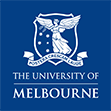The MeG team build upon an extensive track record in delivery of highly successful research-oriented IT projects across a variety of disciplines. Wherever possible we build directly upon the results of these projects from a software perspective, but more importantly from a software engineering perspective to support the development and rollout of software solutions. We summarise the current portfolio of projects here and some of the previously completed projects involving the MeG staff to give an idea of the depth and breadth of research-oriented IT that we build upon. Many of these projects are for University of Melbourne researchers. This is made possible through an internal grant scheme funded through the Melbourne Collaborative Research Infrastructure Program (MCRIP) program to support a research software-oriented platform: Platform for Research Software Systems (PRESS). Where funding allows, the MeG team work across and support PRESS projects.
0
Total number of projects (since 2010)
0
Total Grant Value in AUS $ (since 2010)
0
Grant Value to UniMelb in AUS $ (since 2010)
0
Grant Value to MEG in AUS $ (since 2010)












